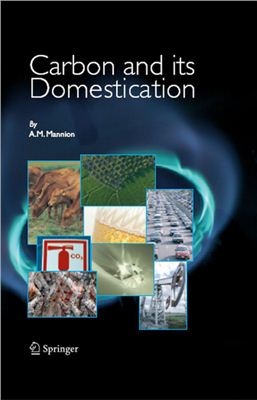Springer 2006. - 334 Pages
Carbon is a vital component of environmental and economic systems. Its unique chemistry makes it important biologically, geologically, and climatically. Its domestication in time and space has many manifestations, including the control of fire, development of agriculture, fossil-fuel use and biotechnology. All have exacted an environmental price. Many agencies exist to manage carbon through conservation, etc. Carbon management is now a highly charged inteational political issue in which energy provision is a primary factor. This cross-disciplinary text focuses on the pivotal role of carbon in society and in the environment.
Introduction
The chemistry of carbon
The biology of carbon
The geology of carbon
The history and consequences of carbon domestication
The geography of carbon
The politicization of carbon
Conclusion and prospect
Carbon is a vital component of environmental and economic systems. Its unique chemistry makes it important biologically, geologically, and climatically. Its domestication in time and space has many manifestations, including the control of fire, development of agriculture, fossil-fuel use and biotechnology. All have exacted an environmental price. Many agencies exist to manage carbon through conservation, etc. Carbon management is now a highly charged inteational political issue in which energy provision is a primary factor. This cross-disciplinary text focuses on the pivotal role of carbon in society and in the environment.
Introduction
The chemistry of carbon
The biology of carbon
The geology of carbon
The history and consequences of carbon domestication
The geography of carbon
The politicization of carbon
Conclusion and prospect

